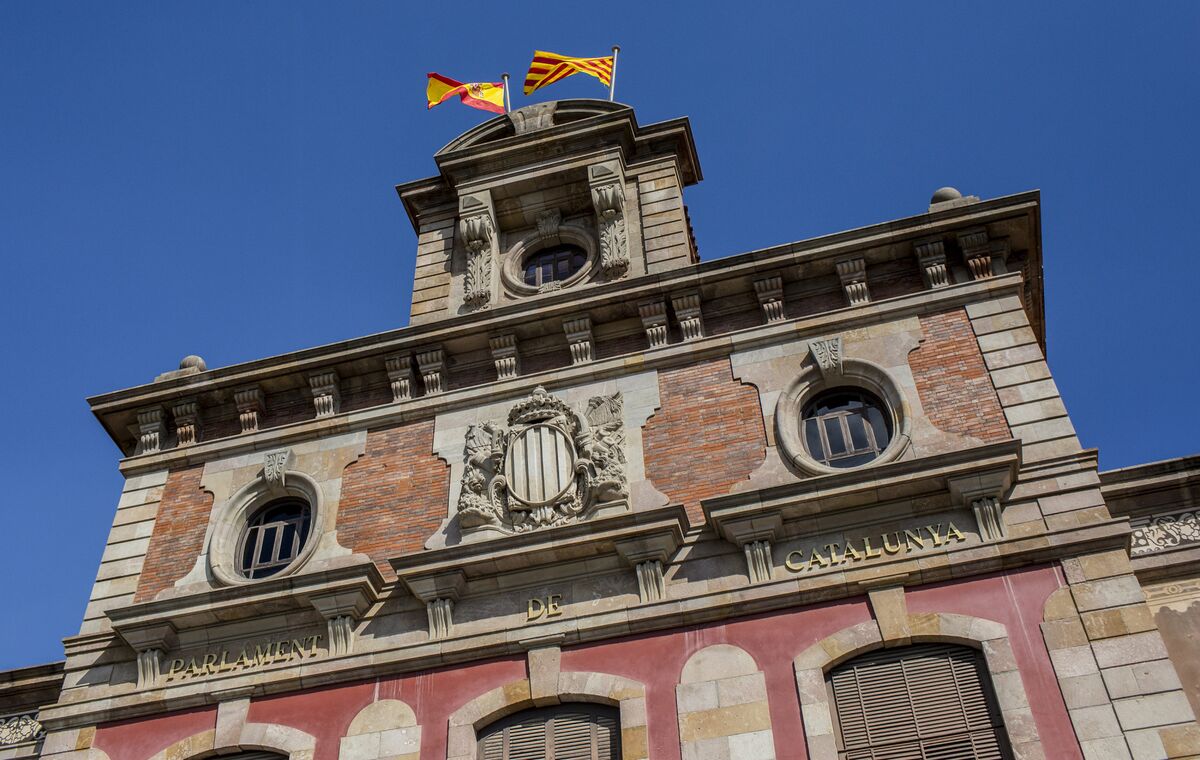
Spain’s secessionist crisis is vacillating between simmer and full boil.
Catalan pro-independence forces and central government authorities are building toward another climax on Friday when the Senate in Madrid is scheduled to wrest control from the rebellious regional government based in Barcelona. Here are the most likely strategies and scenarios for the two sides:
Scenario 1: Rajoy’s plan works, normalcy gradually returns
To neutralize a rebellion that counts about 2 million grass-roots and official supporters, Spain’s Senate on Friday passes more than a dozen measures handing Madrid control over everything from police and budgets in Catalonia to regional radio and television channels.
Although Prime Minister Mariano Rajoy leads a minority government, his People’s Party has a majority in the Senate. It approves never-before-used powers granted under Article 155 of Spain’s Constitution to stop the 212 billion-euro ($250 billion) economy from an illegal break-off from the country.
Legally speaking, invoking Article 155 forces the Catalan government to begin respecting national laws that have been approved by the Parliament in Madrid, signed by the king and endorsed by the Constitutional Court.
Practically speaking, the Article 155 path begins to de-fang a rebellion that has used Catalan institutions and public money to seek sovereignty. The crackdown that unfolds looks undemocratic, as elected or appointed Catalan leaders are dismissed or even jailed on suspicion of crimes that could run to sedition.
The Article 155 measures are translated into laws that can be individually enforced. After a transition lasting many months, punctuated by opposition in the streets and among civil servants needed to keep Catalonia’s schools and hospitals running, Madrid’s authority is gradually restored. Political normalcy returns with regional elections in the new year.
SCENARIO 2: More of the same, cat-and-mouse game continues
Catalonian President Carles Puigdemont unequivocally declares independence. Or he calls sudden elections for the region. He raises those options in the legislature in Barcelona in sessions on Thursday or Friday.
The central government delays carrying out all its Article 155 measures after the Senate approves them on Friday, in anticipation of the new political make-up in Catalonia. That’s even though recent polls signal that pro-independence parties may win another majority.
Madrid’s decision to hold off on the measures is based on respecting the legitimacy of Catalonia calling its own elections, and on a gamble that the new government coming to power won’t be as defiant, allowing for both sides to engage more in a resolution.
For a look at separatists’ plans to face down Spanish authorities, click here
“If you are going to call elections, it makes sense to do so before 155 is in place, because once 155 is imposed, theoretically you have lost power,” Ignacio Jurado, a partner at Madrid-based political consultancy Quantio, said in a phone interview.
The pro-independence politicians will frame the elections as a win, said Jurado, who also is a lecturer at the University of York in the U.
“One way of mixing it would be an independence declaration while also calling elections -- making a sort of political statement that ‘We already consider ourselves sovereign,’” he said. “It would make regional elections into a constituent plebiscite.”
Rajoy’s Deputy Prime Minister Soraya Saenz de Santamaria hinted obliquely at this scenario Monday when asked if 155 might be kept at bay if a regional election is called this week. She said the decision of whether 155 goes ahead is up to the Senate, while noting the chamber could adapt to “changing circumstances.”
SCENARIO 3: Rajoy’s plan runs into trouble, chaos ensues
Spanish politicians tread into uncharted territory. Just attempting to take over a 17,000-member police force, Catalonia’s Mossos d’Esquadra, which is suspected of less-than-perfect loyalty to Spanish law, is a maneuver not found in operations manuels.
While Rajoy’s team has the backing of two other key parties -- the Socialists and Ciudadanos -- it has opponents: The leftist Podemos party tries to block or delay the Article 155 route in the Senate.
Firing a democratically elected Catalan political class, backed by hundreds or thousands of civil servants who want out of Spain, proves an unwieldy task that becomes more oppressive by the day, cutting into the popularity of politicians in Madrid enforcing it.
This scenario leads to persistent unrest on the streets, investors and tourists avoid Catalonia and Spain’s economy heads toward recession. The political costs of Rajoy’s strategy begin to take their toll on the minority government as instability radiates through other parts of Spain.


0 comments:
Post a Comment